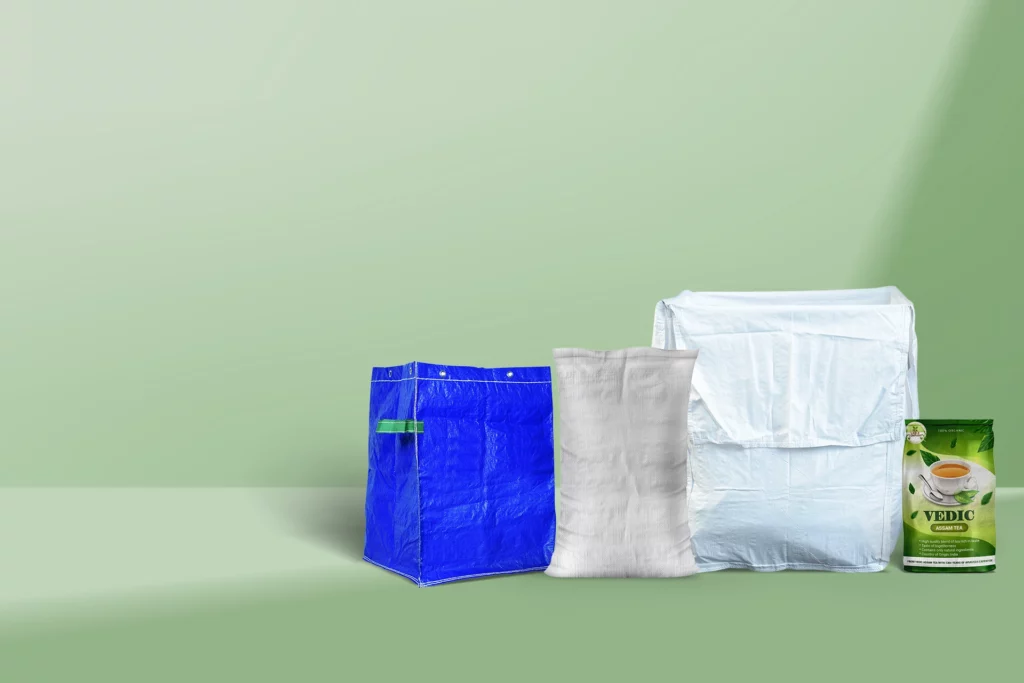In an era of heightened environmental awareness, the quest for sustainable solutions in everyday life is more critical than ever. Packaging materials, in particular, have come under scrutiny for their environmental impact. Amid this challenge, recycled woven bags emerge as a practical, eco-friendly alternative that not only addresses waste management issues but also promotes a circular economy. This blog delves into the importance, benefits, and future of recycled woven bags, illustrating how they can pave the way for a sustainable future.
The Growing Need for Sustainable Packaging
Plastic pollution has become one of the most pressing global challenges, with millions of tons of plastic waste polluting our oceans and landscapes. Traditional single-use plastic bags, commonly used for packaging, are a major contributor to this crisis. These materials take centuries to degrade and release toxic substances into the environment.
The adoption of recycled woven bags is a step toward mitigating these issues. By reusing materials and reducing reliance on virgin plastics, these bags contribute to waste reduction, resource conservation, and environmental sustainability.
What Are Recycled Woven Bags?
Recycled woven bags are made from previously used materials, often sourced from post-consumer or post-industrial waste. These bags typically consist of woven polypropylene (PP) or polyethylene (PE) fibers, repurposed and transformed into durable and reusable packaging solutions. The recycling process involves:

- Collection: Gathering used plastic materials, such as old bags and industrial scraps.
- Processing: Cleaning, shredding, and melting the materials to create new fibers.
- Weaving: Converting the fibers into a woven fabric to produce high-quality, resilient bags.
The result is a versatile product that retains the strength and functionality of virgin material while significantly reducing its environmental footprint.
Key Benefits of Recycled Woven Bags
1. Environmental Impact
The primary advantage of recycled woven bags lies in their ability to reduce plastic waste. By repurposing used materials, they help decrease landfill waste, minimize ocean pollution, and reduce the demand for virgin plastics, which are resource-intensive to produce.
2. Durability and Reusability
Recycled woven bags are exceptionally durable, with the strength to carry heavy loads. Their reusability further enhances their sustainability, as they replace the need for single-use alternatives.
3. Energy Conservation
The production of recycled materials consumes significantly less energy compared to manufacturing virgin plastics. This reduction in energy usage translates to lower greenhouse gas emissions, contributing to climate change mitigation.
4. Cost-Effectiveness
For businesses, recycled woven bags offer a cost-effective packaging solution. Their durability reduces replacement costs, while their eco-friendly appeal resonates with environmentally conscious consumers.
5. Promoting a Circular Economy
By embracing recycled woven bags, industries contribute to a circular economy where materials are continuously reused, reducing waste and conserving resources.
Applications of Recycled Woven Bags
Recycled woven bags are incredibly versatile and find applications across various industries:
- Agriculture: Used for storing and transporting grains, seeds, and fertilizers.
- Retail: Ideal for shopping bags due to their strength and customizability.
- Construction: Frequently employed for carrying sand, cement, and other heavy materials.
- Food Industry: Suitable for packaging dry foods like rice, flour, and sugar.
- Waste Management: Used for collection and segregation of recyclable waste.
Their adaptability makes them an ideal choice for businesses seeking sustainable and practical packaging solutions.
Challenges in Adopting Recycled Woven Bags
Despite their numerous benefits, the adoption of recycled woven bag faces certain challenges:
1. Limited Recycling Infrastructure
In many regions, the lack of adequate recycling facilities makes it difficult to process and repurpose materials efficiently.
2. Quality Concerns
Maintaining the quality and durability of recycled materials can be challenging, particularly if the input materials are contaminated or of low grade.
3. Consumer Awareness
Many consumers are unaware of the environmental benefits of recycled woven bag, leading to slower adoption rates.
Addressing these challenges requires collaboration between governments, industries, and consumers to invest in recycling infrastructure, ensure quality control, and promote awareness.
How Businesses Can Benefit from Using Recycled Woven Bags
Adopting recycled woven bag can provide businesses with a competitive edge in the modern market. Here’s how:
1. Brand Reputation
Consumers increasingly value sustainability and are more likely to support brands that prioritize eco-friendly practices. Using recycled woven bag demonstrates a commitment to environmental responsibility, enhancing brand reputation.
2. Regulatory Compliance
Many governments are implementing stricter regulations on plastic use. Switching to recycled woven bags helps businesses comply with these regulations and avoid potential fines.
3. Cost Savings
While the initial investment in sustainable packaging may seem higher, the long-term benefits of reduced waste management costs and enhanced customer loyalty outweigh the expenses.
4. Customization Opportunities
Recycled woven bag can be customized with logos, colors, and designs, serving as a unique marketing tool while maintaining their eco-friendly appeal.
The Role of Consumers in Promoting Recycled Woven Bags
While businesses play a critical role, consumer behavior is equally important in driving the demand for recycled woven bag. Here are a few ways individuals can contribute:
- Opt for Reusables: Choose reusable and recycled bags over single-use alternatives for shopping and other needs.
- Educate Others: Spread awareness about the environmental benefits of recycled woven bag.
- Support Green Brands: Purchase from businesses that prioritize sustainable packaging solutions.
By making conscious choices, consumers can help accelerate the transition to a more sustainable future.
The Future of Recycled Woven Bags
The future of recycled woven bags looks promising, driven by technological advancements and increasing environmental awareness. Innovations such as biodegradable coatings, smart materials, and enhanced recycling processes are set to further improve the functionality and sustainability of these bags.
Moreover, as governments and organizations worldwide implement stricter regulations on plastic use, the demand for recycled woven bag is expected to grow exponentially. This shift represents a significant opportunity for industries to invest in sustainable packaging and contribute to a greener planet.
Conclusion
Recycled woven bag are more than just an eco-friendly alternative; they are a symbol of progress toward a sustainable future. By reducing plastic waste, conserving resources, and promoting a circular economy, these bags offer a practical solution to one of the world’s most pressing environmental challenges.
Businesses, governments, and consumers alike have a role to play in embracing this sustainable packaging option. Together, we can create a future where environmental responsibility and economic growth go hand in hand. The next time you consider packaging options, think about the impact you can make by choosing recycled woven bag—a small step that leads to big change.
